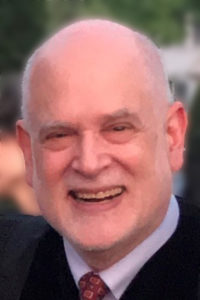Commentary on Parshat Kedoshim (Leviticus 19:1 – 20:27)
In the Bible, there are two traditions, the prophetic and the priestly, both of which aim at building a good society, but do so taking very different approaches. In the Haftarah read on Yom Kippur the prophet Isaiah famously demands: “Is such the fast I desire, a day for people to starve their bodies?” Instead, he calls for justice: “Let the oppressed go free… share your bread with the hungry; take the wretched poor into your home; when you see the naked, to clothe them…” (Isaiah 58:5-7). For the prophet, fasting without social action is meaningless.
In contrast, this week’s Torah reading, Kedoshim (“ Holiness”) presents the perspective of the priest on building a society rooted in the call to “be holy, for I, the LORD your God, am holy” (Leviticus 19:2). Here, in the central section of the central book of the Five Books of Moses, we are given a series of rules—according to Sefer Ha-Chinuch (13th-century Spain) there are 51 commandments in this reading—that touch on all aspects of Jewish law. The Torah portion intermixes ritual and civil law as if to say: Holiness needs to be expressed in all aspects of our lives. Here are a few examples, in their order of appearance:
Do not eat meat left over from a sacrifice (Leviticus 19:5-8); leave gleanings in the field for the poor (19:9-10); do not swear falsely in God’s name (19:11-13); do not delay the payment of wages past the agreed time (19:13).
Holiness is part of a total system of life in which we are motivated to do good because to be human is to behave fairly, to be whole, and to act according to our highest ideals. Judges need to do justice (Leviticus 19:15); sinners need our reproof (19:17).
Sign up to receive Torah from T’ruah in your inbox each week.
The contrast between prophetic and priestly norms goes deeper. Prophets speak in God’s name, on God’s behalf. On the one hand, that gives their voices power. On the other hand, it can lead to overreaching and uncompromising demands for change–personal and institutional. Biblical prophets like Jeremiah rejected compromise, demanding total transformation of the individual and of the state. (Standing on the steps of the Temple, in chapter seven of Jeremiah, the prophet speaks truth to power and condemns his own government despite its being a time of military siege.) By contrast, priests speak on our behalf to God, seeking paths of reconciliation and renewal through the sacrificial system and adherence to the holiness code. They understood human fallibility. The sacrificial system, like the mitzvah system, allowed for a continual cycle of sin and repentance–a mechanism that expresses the hope that, with each turning, people would move forward, spiraling higher towards the good.
Finally, the prophets saw redemption in a messianic future where the laws of nature would be overturned. In Ezekiel 36:26 we read: “And I will remove the heart of stone from your flesh and give you a heart of flesh.” Isaiah 11:6 offers this familiar vision: “The wolf shall live with the lamb, the leopard shall lie down with the kid, the calf and the lion and the fatling together . . . .” For the priestly authors of Kedoshim, reaching perfection occurs within the bounds of the natural law. It involves an endless set of returns (teshuvah), Sabbaths and sabbaticals, corrections of mistakes, debts forgiven, and property restored, as if to suggest that through well-observed laws, we can return the world to the order that God established at creation, a sustainable world in which the animal and vegetable realms can replenish themselves generation by generation. The behavioral code of the priests is less dramatic than prophecy, perhaps less inspiring for some. In our world facing environmental crisis, however, priestly practices like sabbatical laws, agricultural rest, and living in accord with a pre-established natural order offer pathways for human action to restore what was rather than hope for a future when a miracle will resolve the mess we have made. 
Find more commentaries on Parshat Kedoshim
The genius of the early rabbis was their ability to hold both traditions together. The inspiring social justice cry of the prophet echoes in our Haftarah readings. But the concern for order and sustainability, for wholeness and for holiness, informs Jewish practice and law. As we read the commandments of Parshat Kedoshim, we are reminded that inspiring visions are made meaningful by requirements to act.
Rabbi Leonard Gordon is interim rabbi at Temple Beth Sholom in Framingham, Mass. He co-directs Interfaith Partners for Peace, an organization that seeks to rebuild Jewish-Christian dialogue in the United States around the Israeli-Palestinian conflict.


